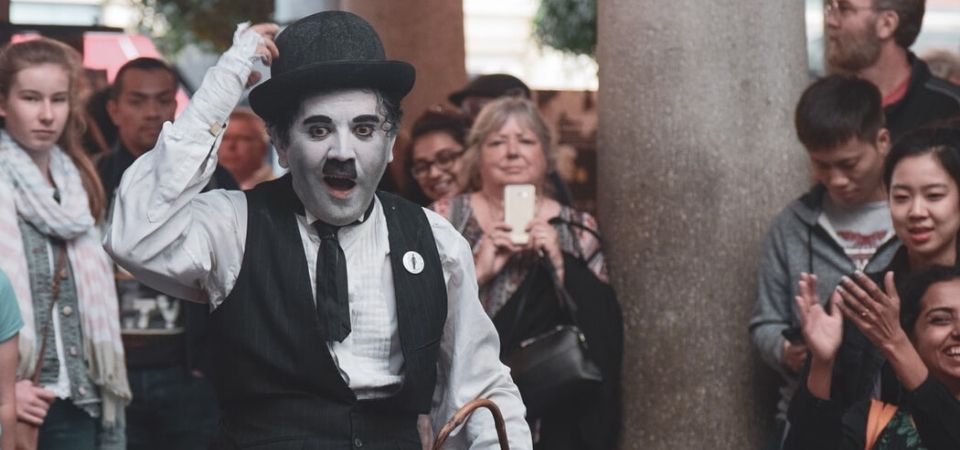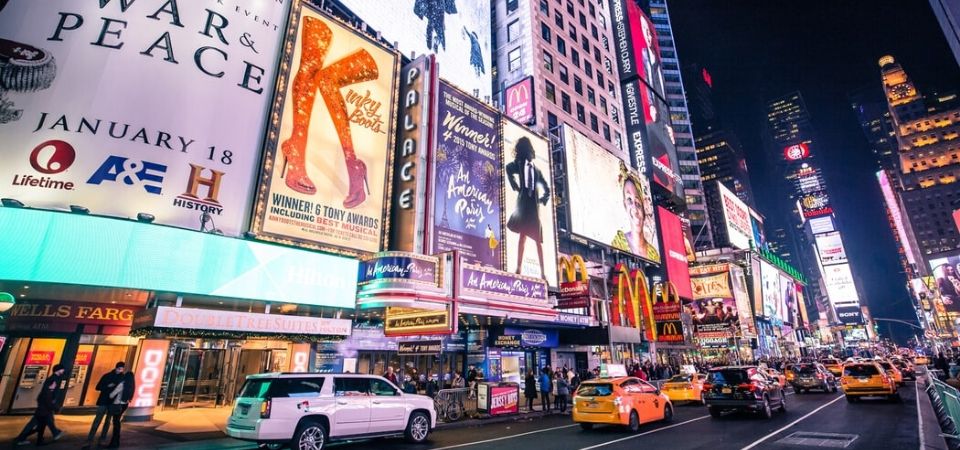- June 26, 2020
- Parisian theatre
- Sam Asher
As humans, one quality that sets us apart from many other species is communication for pleasure. In evolution, the human need for relaying information often warned of key threats for our survival, but also encompassed storytelling for fun. Later these stories evolved into more collaborative processes. Specifically, the form we know today: Theatre.
Theatre is an immense collaborative effort that presents a real or imagined event. It probes us to share information, comment or ask a question and ultimately urges us to bond together. Every country and every city have different forms of theatre, and every theatre environment has been subject to any hardship its surroundings has undergone. Clocking in at 2000 years of age, the city of Paris has a rich history in which theatre has thrived, adapted, and survived. We have put together a concise walkthrough on how theatre in this city always uniquely adapts to any situation, making theatre accessible for Parisians and visiting audiences alike.
Pushing Boundaries in the Time of the King
“Le roi s’amuse” (“The King Amuses Himself” in English) was first performed on the 22 of November in 1832 – but only for one night. After this singular performance, the government promptly banned the play from being performed ever gain because it questioned the power of the king. The play centred around Francis I – the King of France from 1515 until his death – but it was clear that Hugo’s intention was to draw a parallel between this long-gong ruler and the standing King Louis-Philippe, who ultimately banned this play.

Victor Hugo brought forth a lawsuit in order to allow this play to be performed again, but ultimately lost. However, the loss of this suit propelled him into fame for being an avid voice for freedom of speech. In some of his most famous works, Hugo would propel ideas that called freedom of press, universal suffrage, and the education of all children. Eventually France adapted these freedoms, and we can give indirect thanks to Victor Hugo and “Le roi s’amuse” for starting the chain reaction necessary to allow for freedom of expression in theatre today.
Parisian Street Theatre to Roll Down a New Avenue
In Paris, street theatre is believed to be the origin of some of the most iconic forms of French theatre today. In the middle ages, people who entertained on the street were designated the name “jongleurs.” These people were real diverse performers who would perform by showcasing their many talents: singing, telling stories, acrobatics, and anything else to their ability. As time went on, artists began to pick up that having one developed talent is better than having a plethora of underdeveloped skills; the term jongleurs got lost as artists began to develop specialties and we assigned names to them such as actors, musicians, poets and dancers.

Though we won’t find any self-named jongleurs on the streets of Paris today, we will find an adapted form of theatre. Amidst the global pandemic, arts and culture surrounding the theatre was hit the hardest. Without the ability to congregate en masse, audiences and theatres alike suffered from the lack of their ability to fill up their seats to experience this spectacular culture. Luckily, theatre adapts. A group of artists including Gabrielle Jourdain and Samuel Sené recently tamed up to produce an outdoor production that checks all the boxes for social distancing called “c-o-n-t-a-c-t.” An innovative piece that marries technology with the outdoors, this play uses Paris as the stage and can be attended in the open air – and we loved it!
How Paris Made Musicals Their Own
Musical Theatre has a long history of adapting anything it finds. For example: Show Boat was adapted from the novel by Edna Ferber. Oklahoma was based on the play Green Grow the Lilacs by Lynn Riggs and West Side Story was based on Shakespeare’s Romeo and Juliet. Musical theatre has a long history of looking at stories and enhancing them by immersing the already-known tales in a whirlwind of song and dance. As we entered the latter part of the 20thcentury, we saw this trend pick up with movies. For example, Legally Blonde the Musical with Laura Bell Bundy launched in 2007 after the successful movie starring Reese Witherspoon. An even more meta example is Hairspray, which started as a film, then was adapted into a musical, and finally graced the screen again as a musical film decades later. Musicals give stories a sonic beauty and a way for audiences to view stories in a magical and more heightened way, which is probably why this form of theatre continues its successful journey of adaptation!

Of course, the idea that musicals are only for American audiences is a bit near sighted! Paris itself has identified the need to share these incredible productions with their audiences. This demand is so high that there are even entire theatres dedicated to bringing American or American-influenced musicals right to Paris. For example, the Theatre Marigny upholds this belief with its artistic director Jean-Luc Hoplin. Hoplin has committed to bring high caliber anglophone pieces to the Parisian stage, such as this past year when Funny Girl starring Christina Bianco graced the stage of the Marigny. Or we can take it a step further with the Theatre Mogador. The Mogador takes highly popular Broadway hits and translates them into French so their non-anglophone audience can enjoy a musical without subtitles. If you are obsessed with languages, it’s an amazing opportunity to note the translations of song that take place during these musicals such as Ghost, Chicago or the up and coming Lion King, the Musical.
Adaptability is the Name of the Game
Of course, we cannot talk about adaptability without giving ourselves a shameless plug. We are going to cut right to the chase: Theatre in Paris is built on the very idea that theatre is adaptable. The large influx of Parisian theatres adopting surtitling solutions was headed by … us! In 2014 the start-up theatre in Paris made way for its new venture: to provide French theatre to those who do not speak the language fluently. A subsidiary of Panthea (which provides surtitling solutions to multiple institutions internationally in various different languages), Theatre In Paris has changed the game and provided tourists, expats and Parisians alike with access to theatre that otherwise would not be possible. Whether it be with our smart glasses that feature surtitles, classic surtitling on the stage, or accessibility to shows in English, we are proud to have opened up this avenue for theatre-goers in the City of Light, and to have used the adaptability of theatre to do so.





